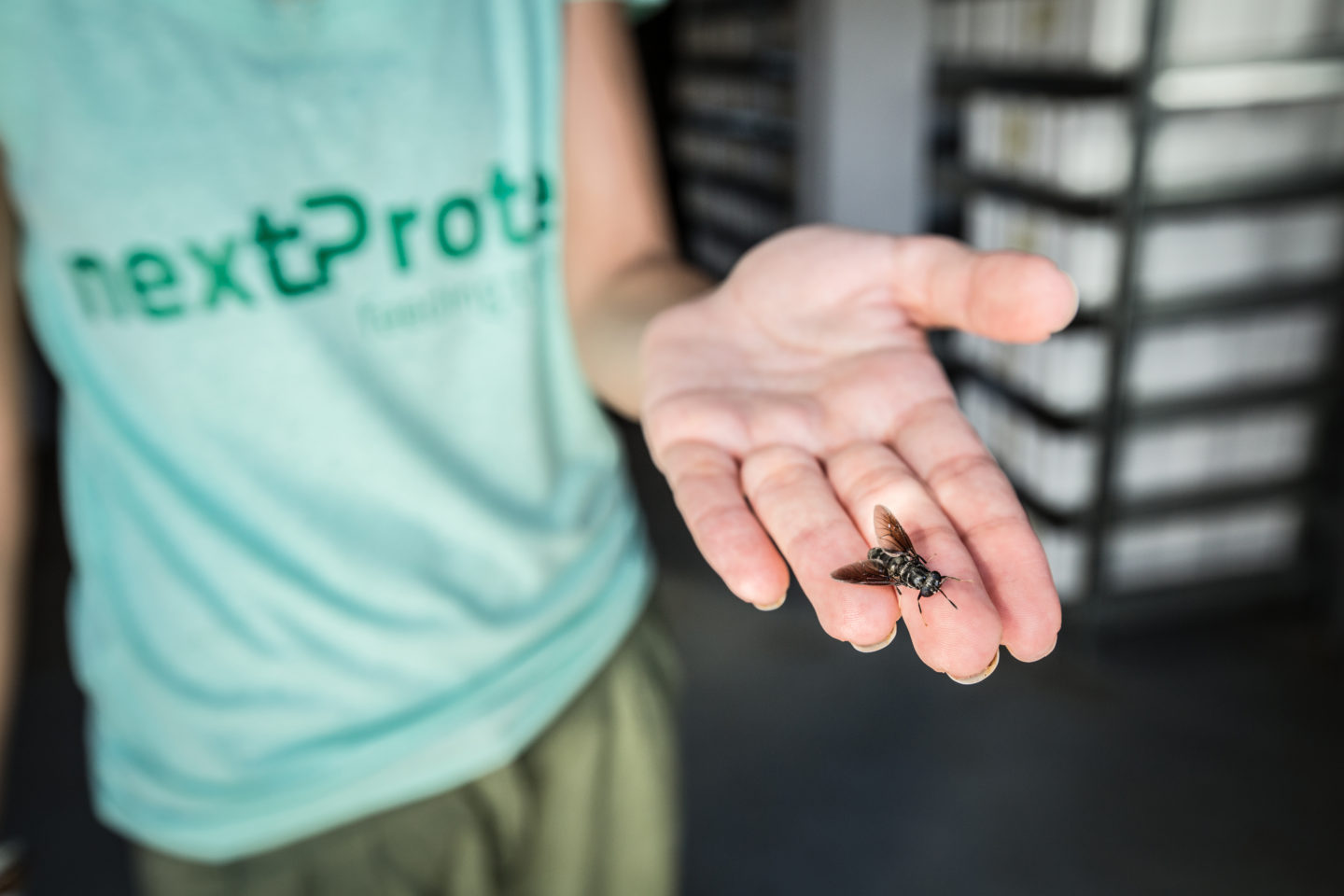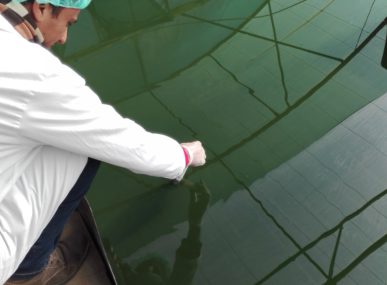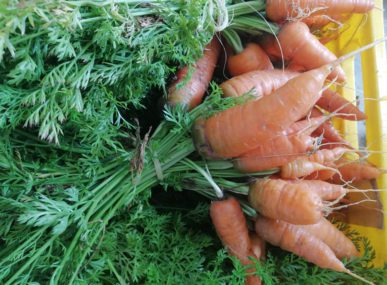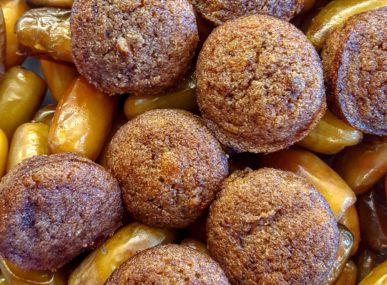Syrine Chaalala was working as an Emergency Operations Specialist with the United Nations in Madagascar when a light bulb went off in her head. She’d been responding to a humanitarian crisis; locusts had invaded the country, wiping out crops, leaving people starving. The only solution was to use pesticides to get rid of the locusts, which in turn, made even more of the crops inedible. Chaalala started thinking about insects and their benefits, including their high protein content and how they’re one of the least exploited resources on the planet.
“At first, my husband and I started brainstorming ways to feed people with insects, but we realized there’s no market for it yet. It’s a [bit] niche; people might serve crickets at a party for fun, but people aren’t interested in eating bugs on a mass scale yet,” says Chaalala. “On the other hand, it would be much more accepted as an animal feed.”
An idea bloomed between Chaalala and her engineer husband, Mohamed Gastli. They wanted to figure out a way to make livestock feed from insects. Plus, they wanted to start a company that allowed them to spend more time together. With the UN, Chaalala was always traveling, and her husband lived in Paris, working as an engineer and a music producer.
“We wanted to find something that combines both of our passions, and that allows us to live on the same continent, in the same country,” says Chaalala.
So, like any good startup, the couple started experimenting in their garage in Tunisia under an Ikea tent, and nextProtein was born in 2014.
How nextProtein makes food out of insects:
Solving the problem of just how to mass produce animal feed from insects isn’t an easy one. Chaalala and Gastli researched and experimented before they settled on the black soldier fly, which provides high yield with a short reproductive cycle. The couple found out they can feed the flies organic waste.
“One-third of human food is thrown away into the landfills,” says Chaalala. “So for us, it was important to choose an insect that wouldn’t be taking away from human food, but an insect that would allow us to reuse wasted product and reintegrate it back into the food cycle.”
The insects are grown into larvae, and then turned into two products: nextProtein, a protein powder, and nextOil, after extraction. A third product is nextGrow, a natural fertilizer.





